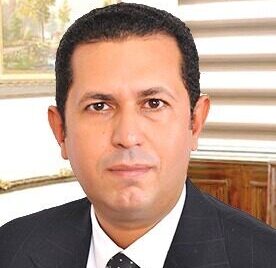The assassination of Hezbollah’s Secretary-General, Hassan Nasrallah, comes within a context of complex regional dynamics.
Assassinations may represent a tactical victory for Israel. However, the effects of the same assassinations may take months, even years, to transpire.
In 1992, Israel assassinated Abbas al-Musawi, the former secretary-general of Hezbollah. Despite Israel’s joy, Hezbollah thrived under al-Musawi’s successor.
Today, with Nasrallah’s death, Hezbollah faces new challenges. Nonetheless, the movement’s long history of recovery and ability to reorganise suggests that it is not doomed to shrivel up as some may imagine.
Historically, targeting Hezbollah’s leaders has not provided Israel with a significant strategic advantage.
Despite the loss of important leaders, the movement proved its resilience and ability to adapt to changing circumstances.
Some experts argue that assassinations may temporarily lower the movement’s morale, but they will not weaken its resolve or permanently threaten its existence.
Sanam Vakil, deputy director of the Middle East Programme at Chatham House, says Hezbollah knows that any escalation may lead to a conflict it cannot win, but not responding could weaken its legitimacy.
This reflects the internal struggle the party faces between responding to pressures and maintaining its image as a resistance force, he said.
There are also growing fears that the killing of Hezbollah leaders may inspire the rise of a new generation of fighters.
History reminds us of Abu Musab al-Zarqawi, whose killing led to the rise of Daesh.
Thus, today’s assassinations could lead to the emergence of new formations that reconsider their strategies and goals, making the equation more complex.
Israel’s so-called ‘decapitation strategy’ raises questions about its effectiveness.
Although it may seem like an easy solution, it often leads to counterproductive results.
Nasrallah’s killing, while a major blow, may not translate into increased security for Israel.
Instead, it may fuel the desire for revenge and retaliation from the movement and its allies, widening the cycle of violence in the region.
The death of Nasrallah and other leaders is undoubtedly a painful blow to Hezbollah, but it will not herald the end of the movement.
The lessons learned from history and the increasing challenges facing Israel in the context of these assassinations suggest that this step may ultimately lead to unexpected outcomes.
In the long term, Hezbollah may remain an active force on the regional stage, regardless of the challenges it faces.
What everyone fears is that Nasrallah’s death could drag the region into a full-scale war, as this event could lead to a political vacuum and chaos in Lebanon, opening the door for sectarian tensions.
Iran and its allies will seek to respond, increasing the likelihood of escalating conflicts in Iraq and Syria.
This dynamic could lead to military interventions by regional and international powers, further complicating the security situation and increasing instability in the Middle East.
This calls for the international community to play its role in preventing such a disaster.
Mohamed Fahmy is the editor-in-chief of The Egyptian Gazette and Egyptian Mail newspapers






Discussion about this post